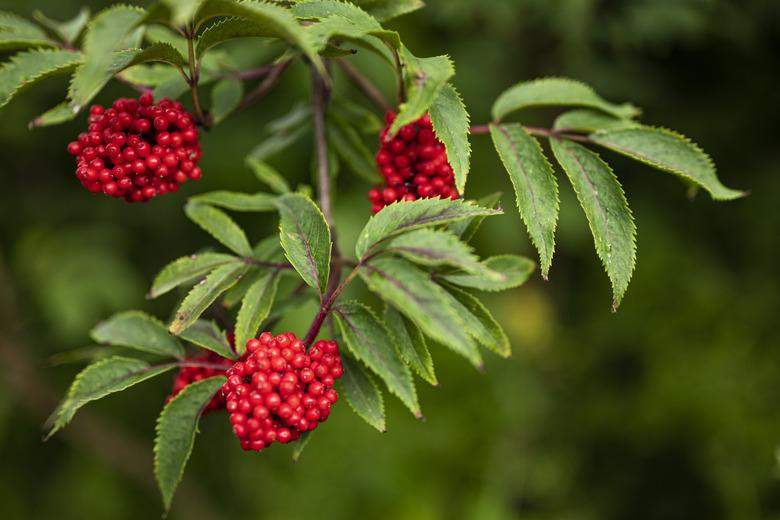Are Mountain Ash Tree Berries Toxic To Dogs?
Gardeners in the United States call them mountain ash, while their European counterparts refer to the European variety as rowan trees. Both are small, deciduous trees with pretty flowers and red berries that are widely cultivated as ornamentals. They are popular with gardeners on both sides of the Atlantic, but might those attractive berries poison dogs?
Tip
While mountain ash berries are not considered toxic to dogs, it's not a good idea to encourage your pets to eat any part of a garden shrub.
Meet the Mountain Ash
Meet the Mountain Ash
What's not to love about a small, beautiful ornamental tree with rich, green leaves, snow-white blossoms in late spring followed by bright red, edible berries in the fall? Meet the mountain ash, an ornamental native to eastern North America that can live for two centuries and is reputed to protect you against evil spirits. Despite the American common name, the mountain ash tree is not a true ash.
There are several varieties of mountain ash. The American mountain ash tree (Sorbus americana) grows to some 30 feet tall. The European mountain ash (Sorbus aucuparia), also called rowan-berry or quickbeam, shoots up twice that tall.
Consider the Mountain Ash Berries
Consider the Mountain Ash Berries
Mountain ash trees are greatly appreciated by wildlife. Moose and white-tailed deer eat the foliage and twigs. The berries are also an important source of food for wild birds and small mammals. Both American and European mountain ash berries ripen on the trees in August and often hang on the branches the entire winter. This makes them an invaluable source of food for birds, who spread the seeds far and wide.
Are the berries edible? They are small and astringent and termed "inedible" raw. They are not eaten much in this country. However, in Europe they are often cooked into a jam or combined with apples in a chutney.
Learn the Effects on Dogs
Learn the Effects on Dogs
The American Society for the Prevention of Cruelty to Animals provides a long list of plants that are toxic to dogs. It does not include mountain ash berries on that list, and, in fact, does not include any Sorbus species as toxic. Given their astringency, the berries are not likely to be very appealing to dogs.
That doesn't mean it's a good idea to encourage your pets to eat them, or any plant. Dogs that consume foliage, flowers, or fruits from any ornamental plant can get sick to their stomachs and throw up. If your dog has eaten garden material and appears sick, it never hurts to take it to the vet.
